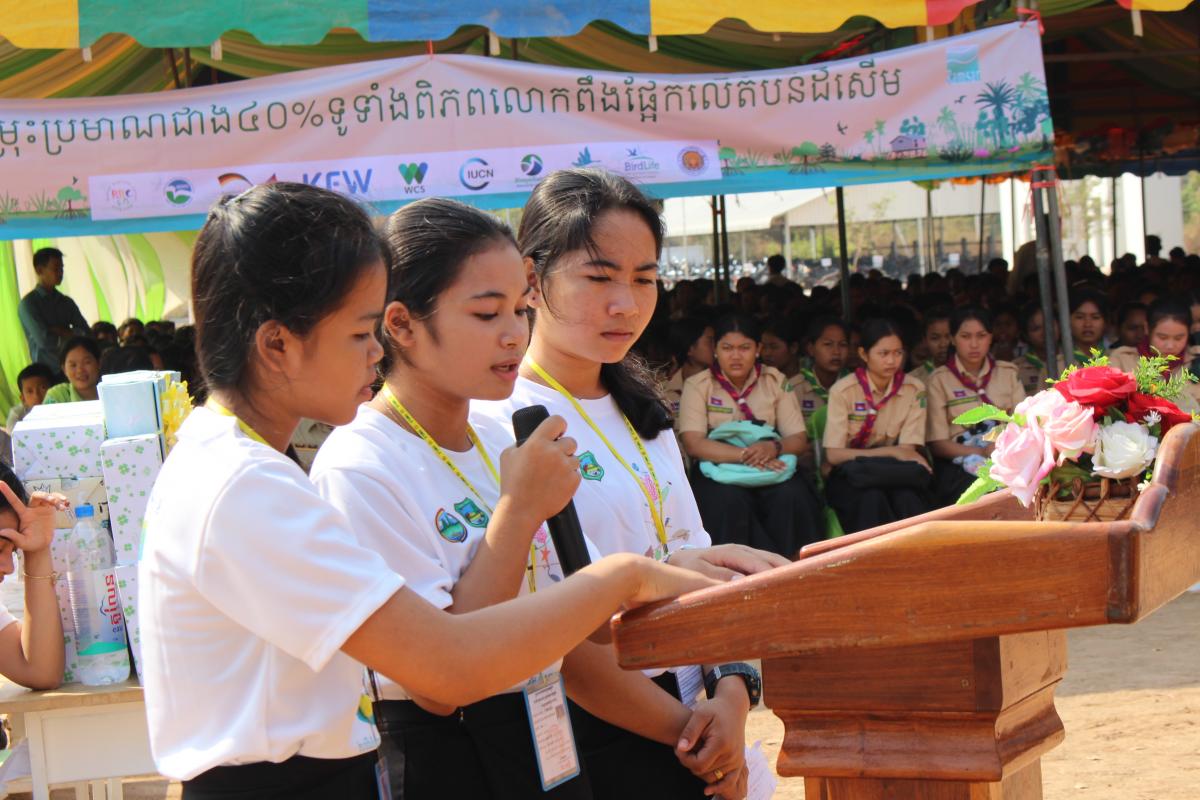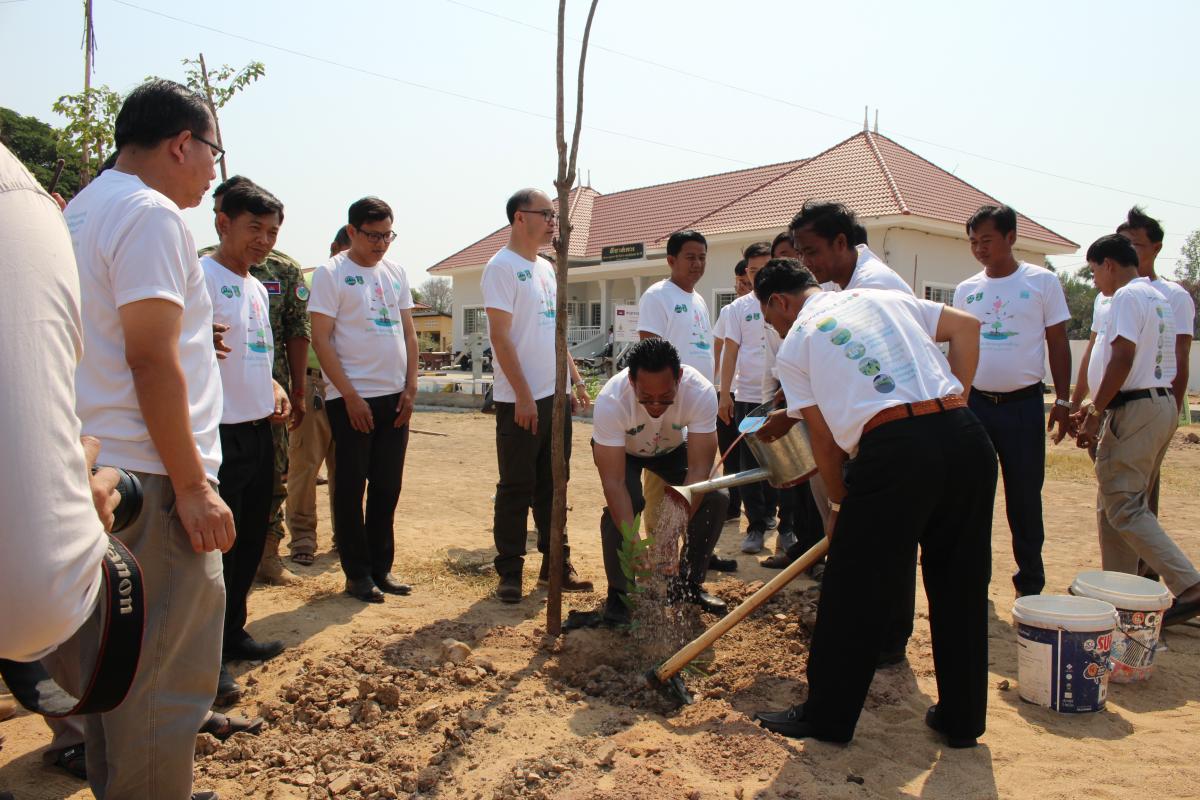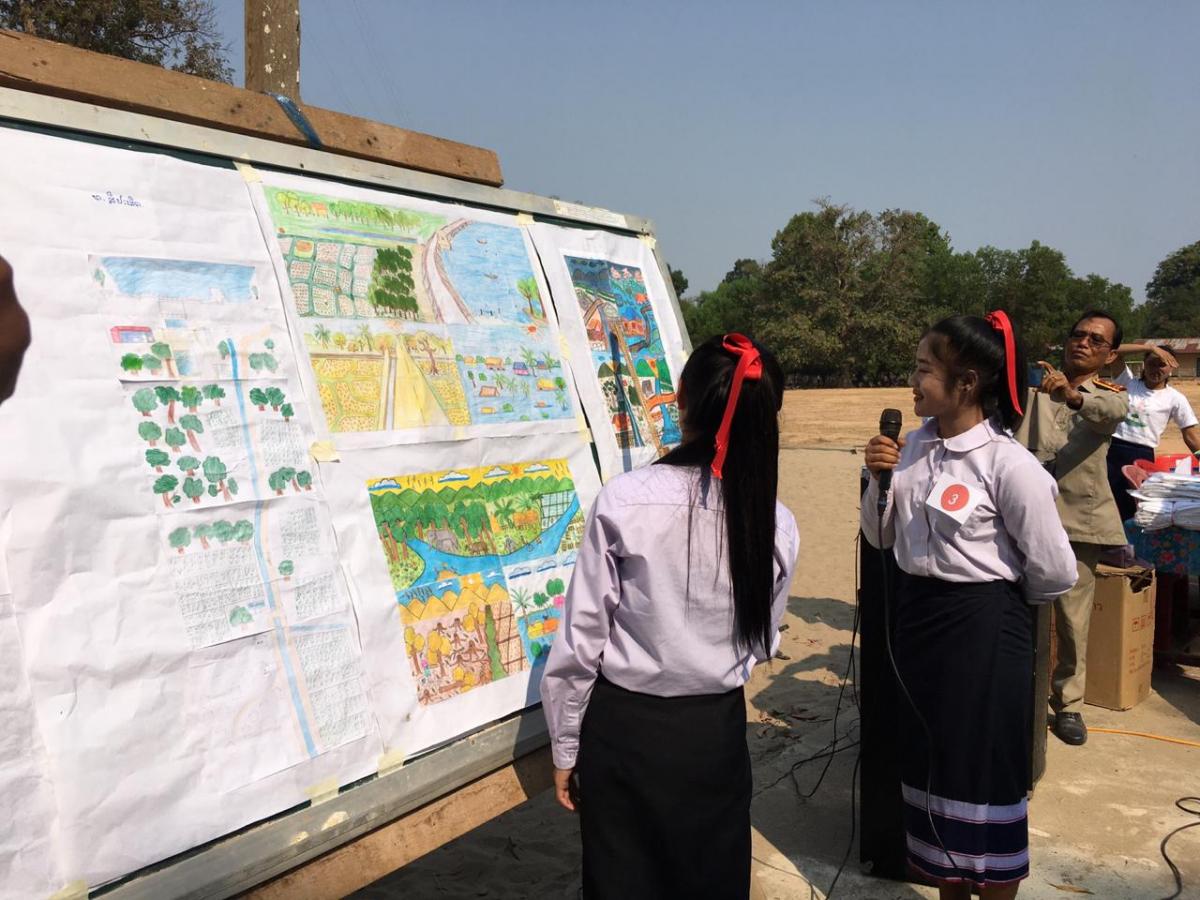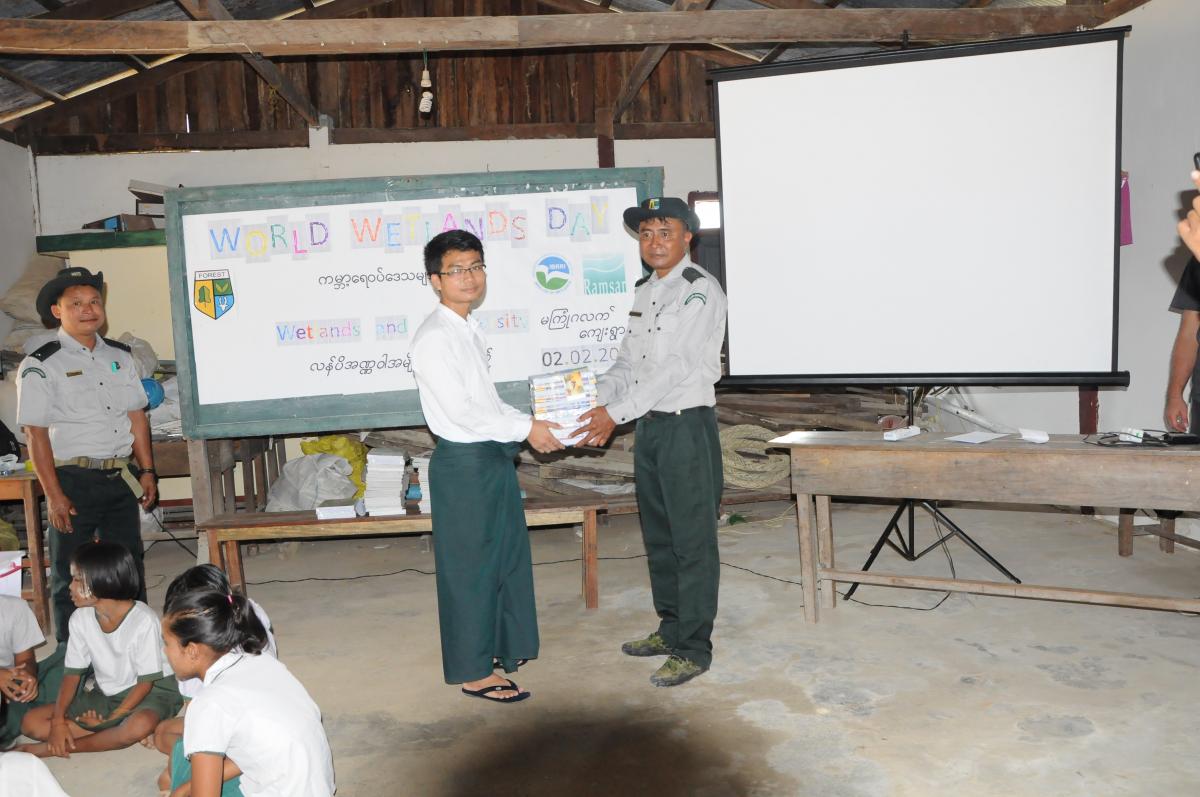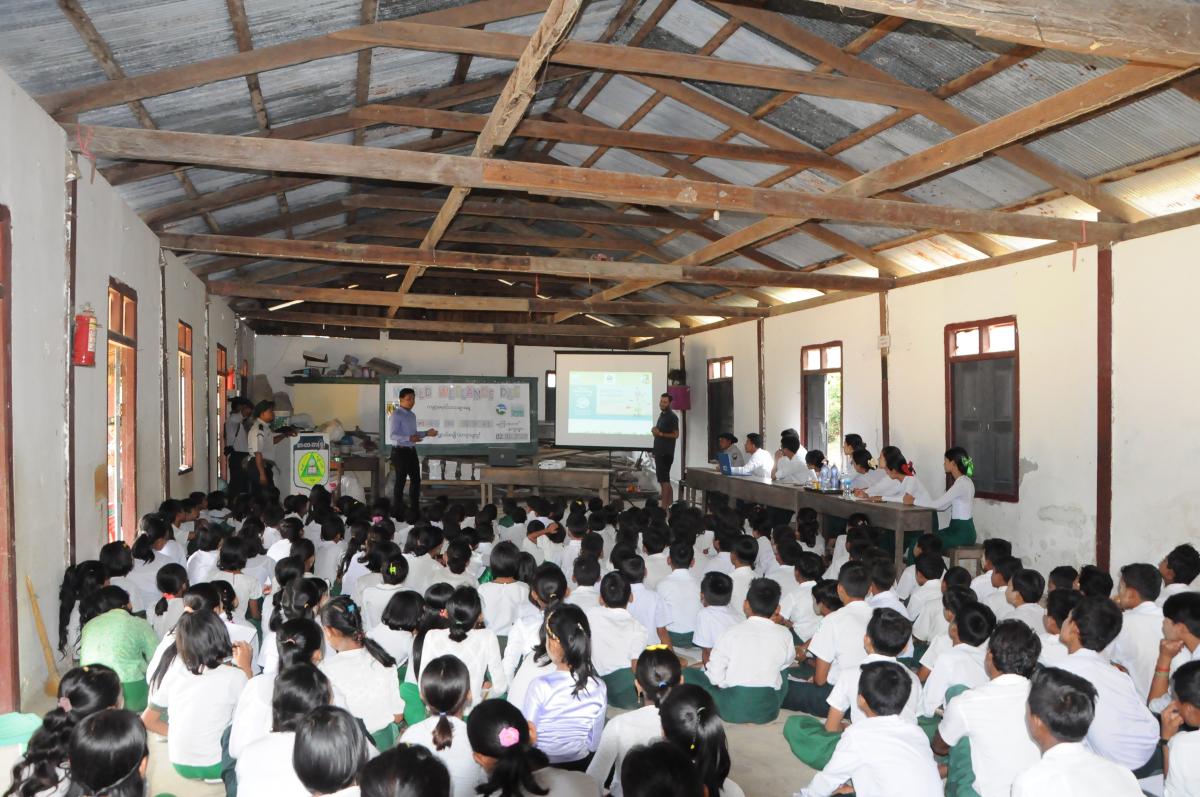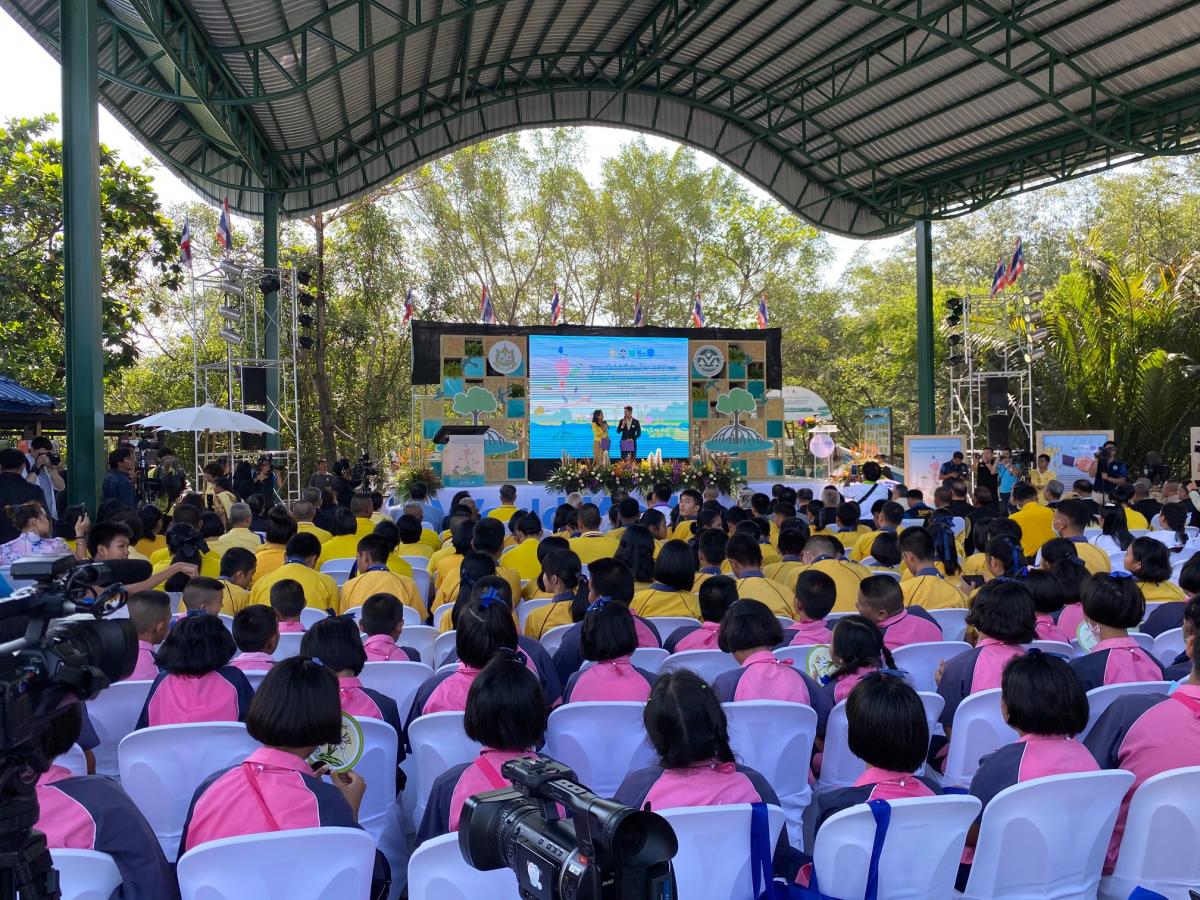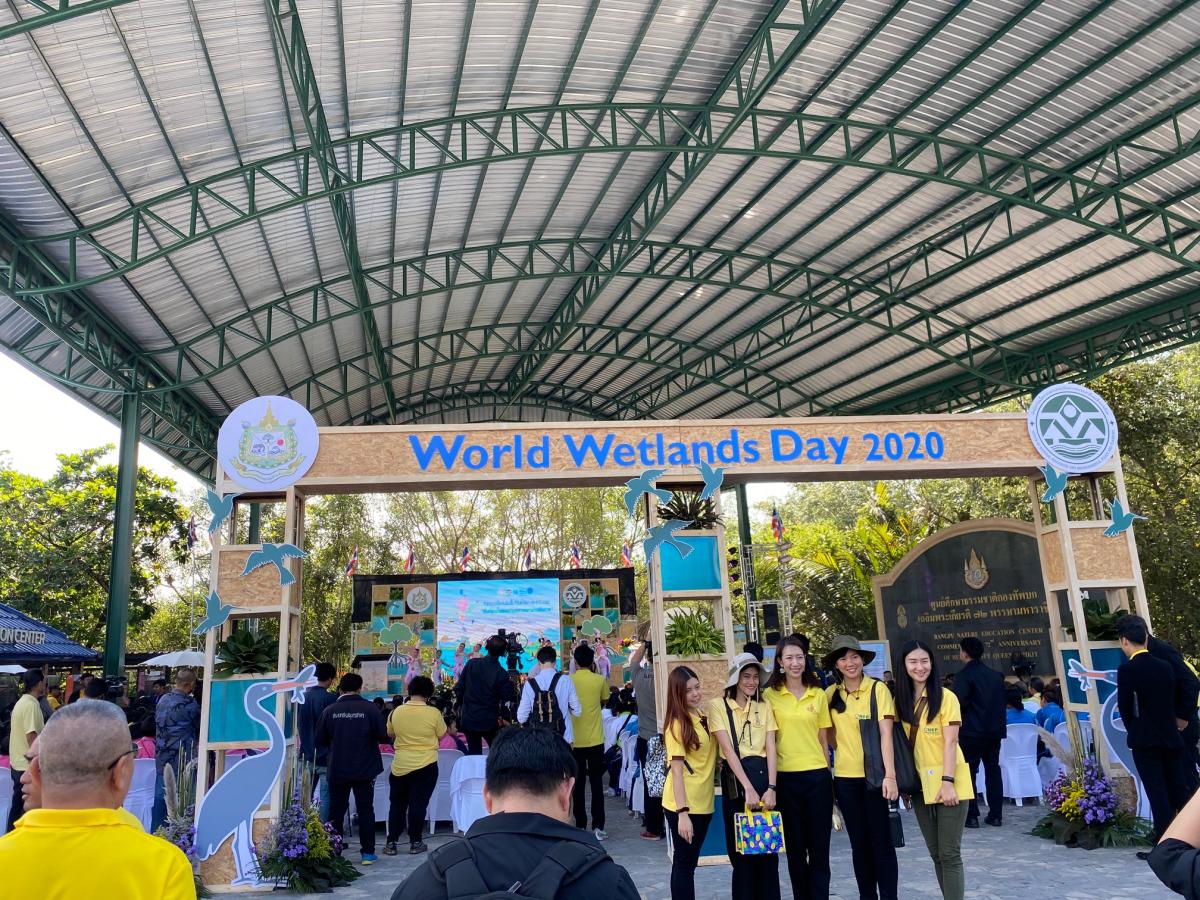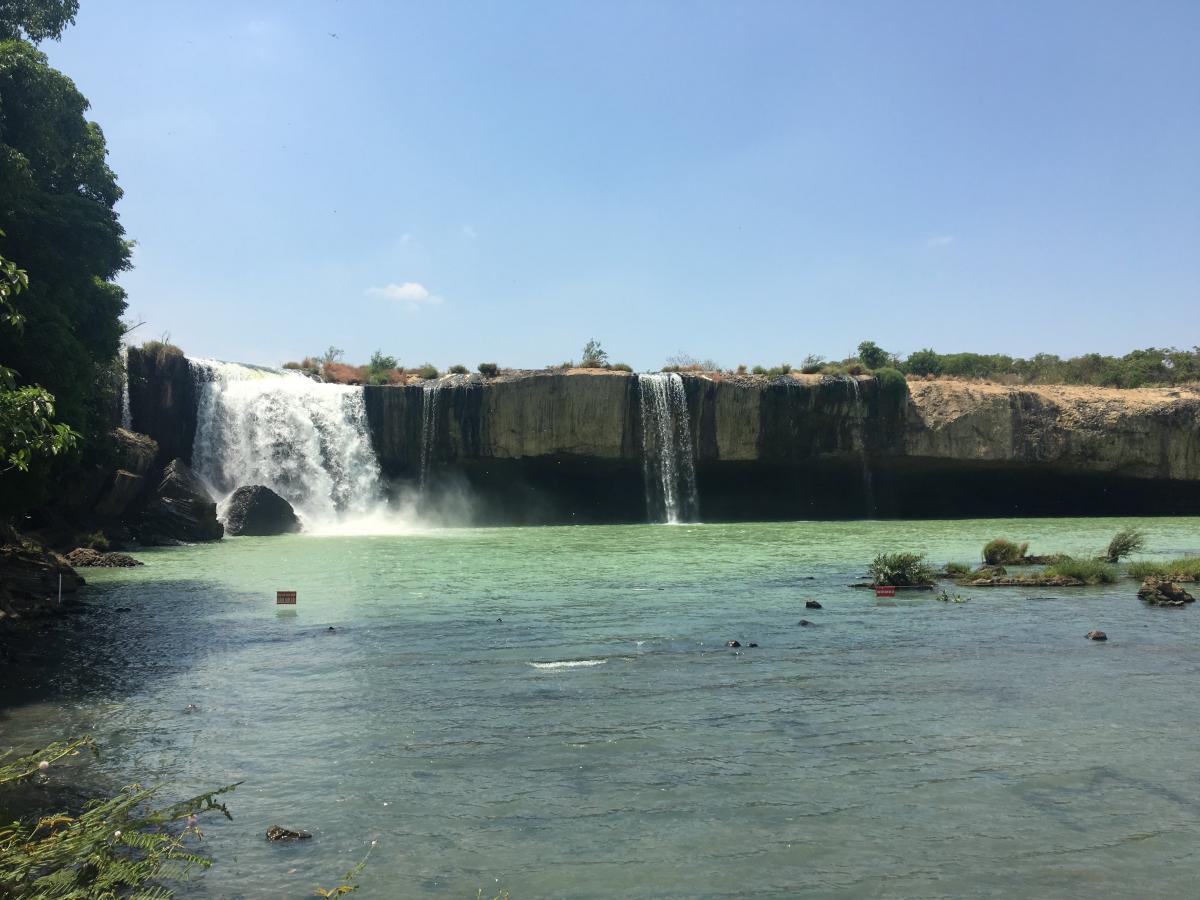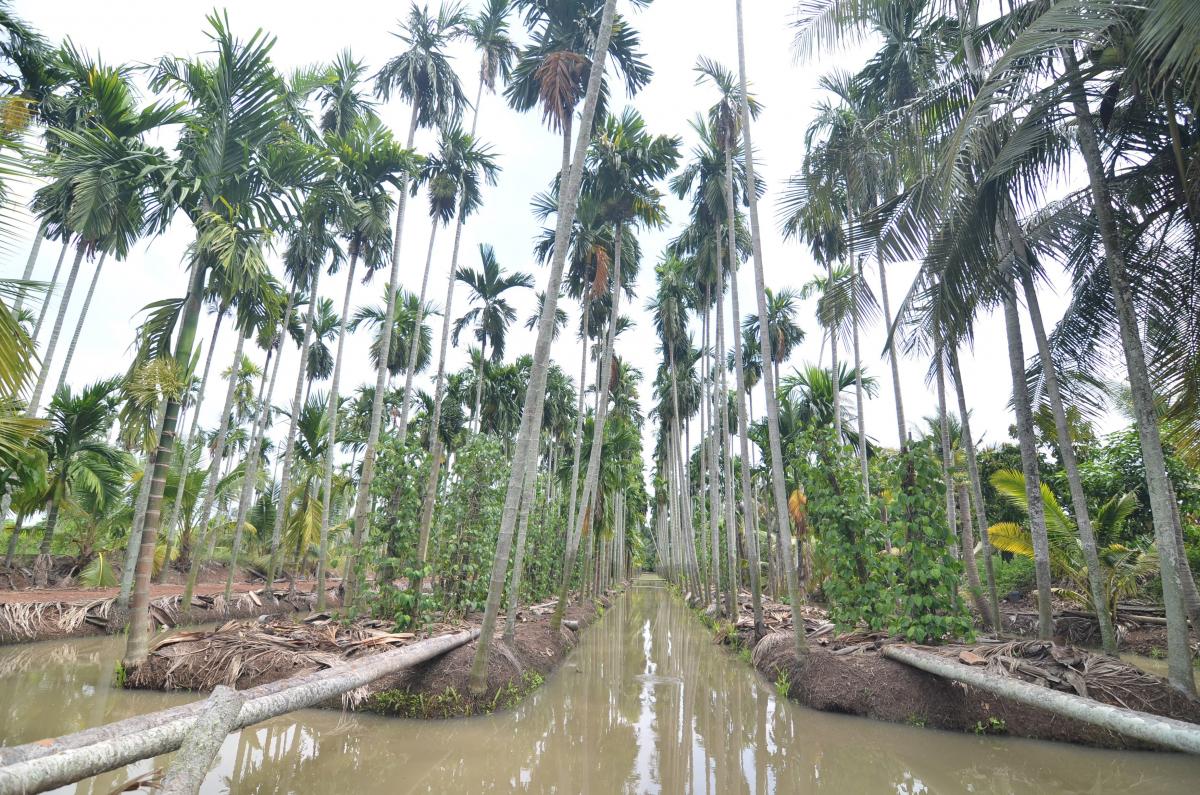Indo-Burma Ramsar Regional Initiative raises awareness of wetland biodiversity during World Wetlands Day 2020
Four countries in the Indo-Burma Ramsar Regional Initiative (IBRRI) celebrated World Wetlands Day 2020, hosting events to educate local communities and youth about the ecosystem benefits and importance of wetlands at local and global levels. National governments in Cambodia, Lao PDR, Myanmar, and Thailand organised bird watching, performances, tree planting, and other activities to highlight the theme of “Wetlands and Biodiversity.”
Cambodia
The Ministry of Environment of Cambodia celebrated World Wetlands Day 2020 in Ang Trapeang Thmor Protected Landscape. Approximately 500 people, including students, community members, and conservation partners attended the event, which enhanced public awareness of wetlands through student poetry, short skits, and quizzes on the value of wetlands. After the ceremony, participants planted trees at a local school, then joined birdwatching in the wetland.
“World Wetlands Day is an important event to promote public understanding about the values and services of wetlands and to develop support from all stakeholders because wetlands are essential for the survival of people and other animals,” said H.E Srun Darith, Secretary of State for the Ministry of Environment.
Lao PDR
Lao PDR celebrated World Wetlands Day at Beung Kiat Ngong and Xe Champhone Ramsar Sites. The events were hosted by the Provincial and District offices of Natural Resources and Environment and by the Department of Environmental Quality Promotion.
On 1 February, a clean-up activity was organised in Xe Champhone wetland, in preparation for the World Wetlands Day celebration, with participation from students, villagers and government representatives from three villages located within the wetland. The main celebrations for the Beung Kiat Ngong Ramsar site were held in Phapho village on 2 February. Students and government officers participated in telling stories about sustainable fishing and performing traditional dances.
On 4 February, the Xe Champhone Ramsar site hosted an event for World Wetlands Day. The event had a Q&A activity with students about the importance of wetlands. The students then presented drawings about climate change issues in their villages, such as floods, droughts, deforestation, and associated impacts on rice cultivation and food security. There was a theatrical performance by the Department of Environmental Quality Promotion to raise awareness about the importance of wildlife and biodiversity.
Myanmar
World Wetlands Day was celebrated on 2 February at Lampi Marine National Park with the support of IBRRI. The event was organised by the Park Office of Lampi Marine National Park, Nature, and Wildlife Conservation Division, Forest Department with over 270 participants. Activities included children’s painting and essay competitions, a quiz about wetland biodiversity and environmental education talks to raise awareness of the importance of wetlands and mangroves. The event provided a chance to share knowledge about the values of wetlands and strengthen the governance of wetlands involving park staff, youth, and the local community with development partners.
Thailand
The Office of Natural Resources and Environmental Policy and Planning, held an event at Bangpu Recreation Center, a coastal mangrove education centre in Samut Prakan Province. Approximately 300 school children and community members attended the celebration. Environmental organizations including Regional Community Forestry Training Center for Asia and the Pacific (RECOFTC) and the Zoological Park Organization, showcased their achievements in wetland conservation in Thailand.
“Today’s main objective is to encourage all sectors to increase their awareness of the value of wetlands,” said Ms. Raweewan Bhuridej, Secretary-General, ONEP.
To boost engagement with the audiences and to promote wetland learning, IUCN displayed photos taken at Thai wetland sites and hosted a wetlands trivia game.
About IBRRI
The Indo-Burma Ramsar Regional Initiative (IBRRI) was launched in June 2016, under the leadership of the governments of Cambodia, Lao PDR, Myanmar, Thailand, and Viet Nam, who are contracting parties of Ramsar. IUCN Asia acts as the secretariat for the initiative. Ramsar Regional Initiatives (RRIs) under the Ramsar Convention are intended as operational means to provide effective support for improved implementation of the objectives of the Convention and its Strategic Plan in specific geographical regions, through international cooperation on wetland-related issues of common concern. Regional Initiatives provide an enabling environment for the involvement of all stakeholders at all levels, including the ministries responsible for the environment and water issues, intergovernmental bodies, Ramsar International Organisation Partners (IOPs), other NGOs, academia, local communities, and economic actors. They provide a platform for governments, technical experts, international NGOs, local communities and private companies to collaborate on the governance and administration of the Ramsar Convention.
